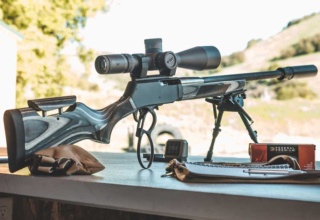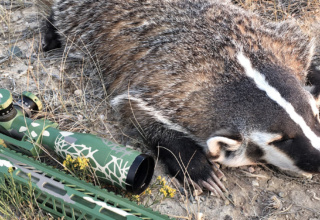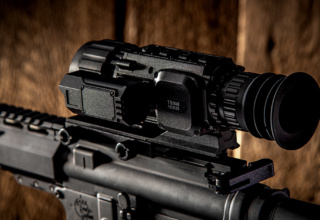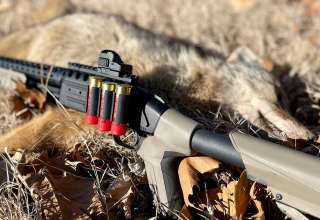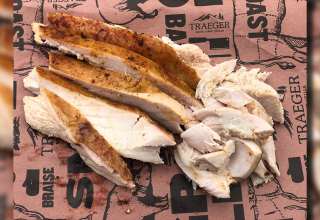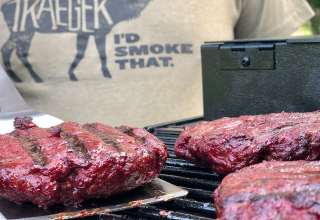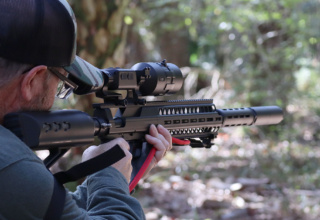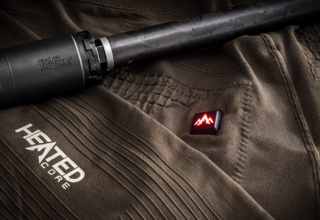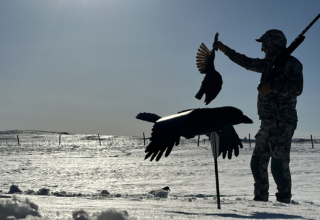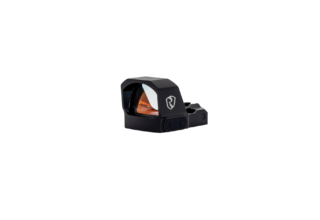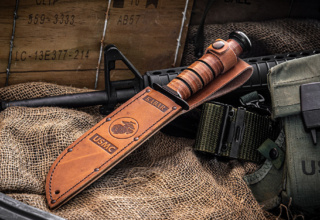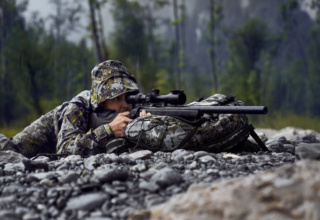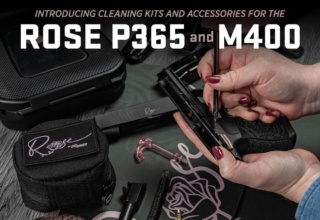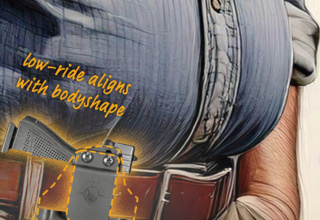When hunting hours are at a premium, you need to hunt smarter, not harder. Here’s how to make the most of your off-hours predator hunting.
by Heath Wood
Most hunters will say that they do not have as much time to hunt as they would like. Jobs and life obligations often get in the way. I can empathize, having spent the last 12 years working 52 hours a week. As a result, much of my hunting occurs before or after work and on weekends.
Early morning weekday hunts seemed to be more inconvenience than fun when I first started pre-work coyote hunting, but I soon realized that a fast-paced style of hunting could lead to early morning success.
Regardless of the time of day or species I’m after, I’ve necessarily become accustomed to fast-paced hunting. Throughout the spring and into early fall, you have approximately 1.5 hours of hours before the workday begins. Come winter, you may only have weekends to hunt. During the summer, there is time to make a couple of setups before going to work. For example, ninety percent of the spring gobblers that I have taken in my home state of Missouri were harvested on a weekday before work.
The same goes for predator hunting. I have been fortunate to harvest several coyotes on the first or second setup of a hunt during the week or on weekends before family time. Doing so requires flexibility and trying different calling tactics to bring in coyotes quickly.
Time-Crunch Tip #1: Scouting
When time is tight, it is best to have a few pieces of property close to your work. I try to keep three to four different locations that are within driving distance. Once you have a few options to hunt, determine which hold the most promise by extensive scouting.
Throughout the year, I go late at night to all the properties that I will be hunting. At each, I work the edge of the property and howl with my FoxPro Smokin Gun Diaphragm Howler or my Shockwave electronic caller, sounding off two or three long howls. I do this a couple times a minute for about three minutes. Typically, within the first couple of howling sequences, coyotes will respond with howling of their own. These howls let me know how many coyotes are in the area and where they are. I make notes and return to the area when ready to hunt.
Another technique is to scout my hunting areas during mid-day—when coyotes are the least active—and look for tracks, droppings, dens, and, of course, coyotes. By identifying the general area in which coyotes are active, I can make better sets, resulting in more successful hunts in a shorter period of time.
Crunch-Time Tip #2: Use Howls for Quicker Responses
Howling is not only good for scouting, it works for bringing coyotes to your set.
Several years ago, I began incorporating howls into all my calling sequences to entice coyotes to respond quicker. It turned out to be an ideal tactic when I did not have much time to hunt.
A coyote is one of the most territorial animals on the planet. By mimicking the sound of another coyote in the area, coyotes will become territorial when they hear prey in distress. They think another coyote is going to get to a leisurely meal before they do. Their instinct tells them to investigate, and they will either prepare to fight or show their presence to say, “Here I am.” This tactic is helpful from early summer throughout fall.
During the winter months—particularly the breeding months of January and February—howls can be especially beneficial to the hunter. They can alert males to a female in the area or alert males to potential competition. Either way, coyotes tend to respond quickly, making this a great tactic if you only have a short time to hunt.
Crunch-Time Tip #3: Cover Lots of Ground Quickly
While hunting when time is short, the ability to hunt fast is essential. One of the most frequently asked questions by new predator hunters is how long to sit at each setup.
There are many opinions on this, yet I favor waiting no longer than 30 minutes. When hunting fast, I stay around 25 minutes. If nothing has shown, I’m off to the next setup. This allows me to cover maximum ground on a piece of property in a short period.
During these abbreviated hunts, I pack light, only taking the essentials. My necessities are packed inside my ALPS OutdoorZ Enforcer Predator Vest. Not only do I have everything packed away in organized compartments, I can set up quickly due to the vest’s built-in seat. That means time finding a place to sit and less time packing my gear before moving to the next setup.
Crunch-Time Tip #4: Make Every Shot Count
When hunting the same few properties on a routine basis, it is important to make every shot count. Coyotes become educated quickly. Once a coyote gets shot at, they will become call-shy.
A good bipod that provides a solid rest and allows you to track a coyote is a requisite for most predator hunters.
Practice making quick (and accurate) follow-up shots. Whether you’re using a bolt-action or semi-auto rifle, you should practice follow-up shooting.
Learn your load and point-of-impact at varying distances. Fancy scopes with BDC reticles are great for long-range shooting, but if you are not adept at making quick calculations and adjusting for bullet drop on in-bound coyotes, your results may be disappointing. Practice, practice, practice.
Yes, a job and everyday life can get in the way of hunting fun, but if you take advantage of those early pre-work hours and use these tips to hunt quickly and efficiently, the daily grind won’t be a major hindrance to hunting success.







